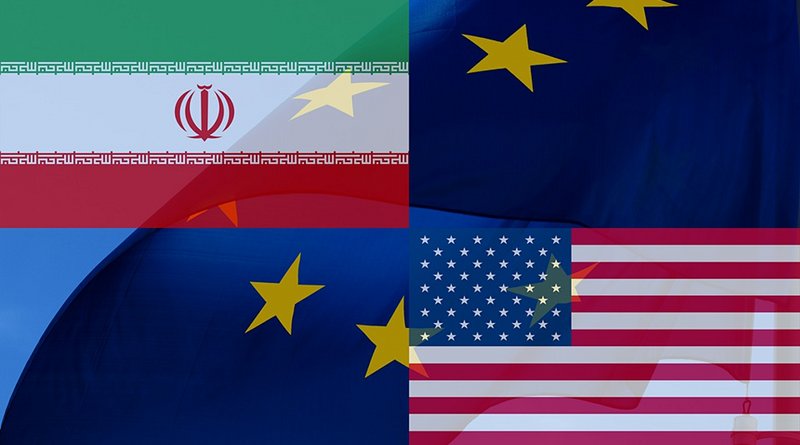US, EU Voice Frustration At Iran’s Dithering On Nuclear Deal
By Arab News
The US and EU have voiced frustration at the UN over the slow pace with Iran, saying its new government showed no indication it was ready to revive a nuclear accord.
“The window of opportunity is open and won’t be open forever,” a senior US official said after days of consultations with allies at the UN General Assembly.
Iran’s new President, Ebrahim Raisi, indicated he backed a return to compliance with the 2015 accord as a way to lift sweeping sanctions imposed by former US President Donald Trump when he withdrew the US. But European nations said they heard nothing concrete as they met with Iran’s new Foreign Minister, Hossein Amir-Abdollahian, who came to New York for the annual General Assembly.
Secretary of State Antony Blinken and a senior administration official said that US patience is wearing thin and that further delays while Iran continues to expand its atomic capabilities could lead Washington and its partners to conclude a return to the deal is no longer worthwhile.
“We don’t have yet an agreement by Iran to return to the talks in Vienna,” Blinken said. “We are very much prepared to return to Vienna and continue the talks. The question is whether, and if so when, Iran is prepared to do that.”
If the talks don’t resume, the officials said the US would at some point determine that Iran was no longer interested in the benefits that the accord offered or that its recent technological advances could not be undone by the limits it imposed.
“The possibility of getting back to mutual compliance is not indefinite,” Blinken said.
“And the challenge right now is that with every passing day, as Iran continues to take actions that are not in compliance with the agreement … we will get to a point at some point in the future at which simply returning to mutual compliance with the JCPOA will not recapture the benefits.”
The UN’s atomic watchdog has said Iran is increasingly in violation of the deal, known as the Joint Comprehensive Plan of Action or JCPOA.
Germany’s Foreign Minister Heiko Maas warned: “The clock is ticking. We’re not going to wait two or three months for the Iranian delegation to come back to the table in Vienna,” Maas said.
“It has to happen more quickly,” he said.
EU foreign policy chief Josep Borrell said that Amir-Abdollahian told him that Iran was ready to restart talks “at an early date” but gave no more precise time.
Barbara Slavin, an expert on Iran at the Atlantic Council, said that Tehran ultimately had an interest in returning to talks for the sake of the relief of sanctions which have taken a heavy economic toll.
“They’re taking their sweet time,” Slavin said. “I still think they have to come back to the talks. I think they need it,” she added.

